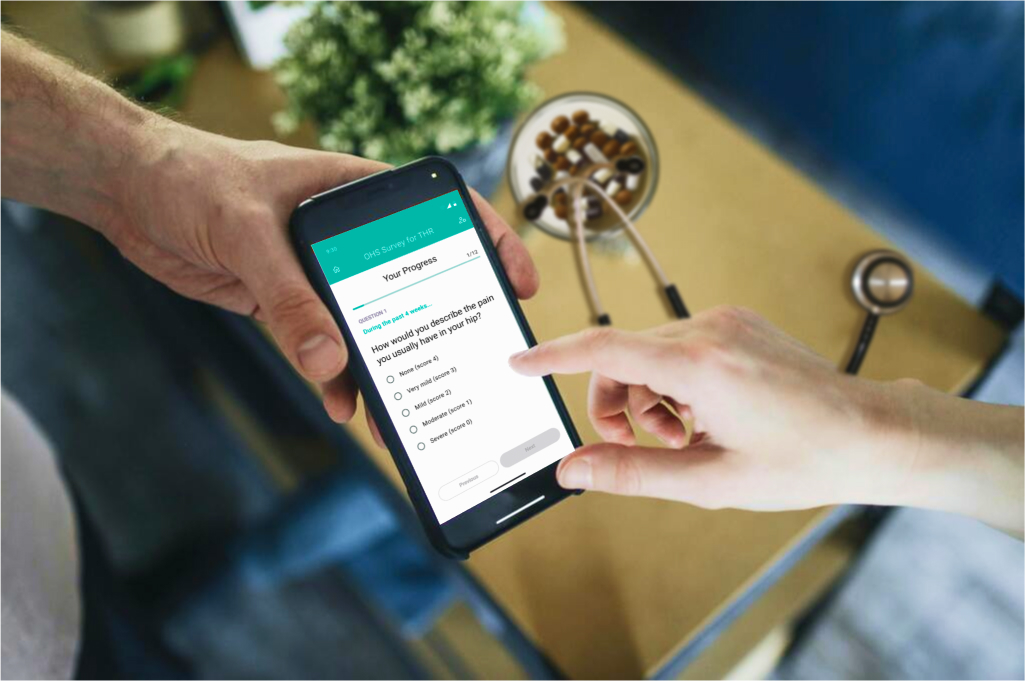Every clinical research worker has a story about collecting paper documents and, more specifically, the pain of paper.
Paper submissions must also be manually reviewed and uploaded into the trial database, which adds time to the process and may lose a sponsor or CRO the first-mover market advantage.
ePRO, on the other hand, combines this eCOA data into the study automatically, boosting the depth, timeliness, and quality of patient-reported outcomes data in the following ways:
1. Timeliness of PRO collection
ePRO collection is always done on time. Participants are notified to finish their studies by the deadline provided in the protocol. There are no paper forms to lose, and many patients already use electronic devices at work and at home, making it simple.
Paper survey completion compliance can range from 8 to 14% and is rarely more than 30%. Electronic surveys have been demonstrated to have 90 to 97% compliance in studies, and some patients have stated that electronic diaries are easier to use. ePRO also adds timestamps to completed forms and uses electronic reminders to encourage participation. This helps to avoid the "parking lot syndrome," which occurs when a participant completes all of their surveys in the parking lot right before the event.
The timely reporting of ePRO may also help patient safety. Participants in clinical trials frequently delay reporting symptoms of adverse events (AEs) until their routine checkups, rather than reporting them as they occur. In contrast, ePRO makes it simple to capture patient-reported outcomes whenever they are required, whether at predetermined intervals or when the participant is experiencing symptoms.
2. Completeness of PRO collection
ePRO is not only more immediate; it is also more comprehensive. Under-reporting of symptoms, particularly mild ones, is a common concern in many trials. This conduct can occur for a variety of reasons, including forgetfulness, a failure to recognize the value of reporting these symptoms, and anxieties about having therapy discontinued.
Participants can report symptoms as they occur using electronic patient-reported outcomes, and researchers can obtain that information in real-time.
By delivering reminders and demanding that each item be filled out before submission, an ePRO solution specifies when and how participants should report symptoms. Furthermore, researchers can configure electronic PRO systems to notify them when participants enter out-of-range responses, allowing them to act swiftly.
3. Fewer Reporting Errors
Surveys performed using ePRO are less likely to contain errors than paper surveys. Utilizing an ePRO can help to avoid missing data because the patient must answer all questions exactly as they are provided. ePRO also eliminates nonsensical responses, such as marks outside of a visual analog scale (VAS).
The usage of ePRO also avoids the issue of illegibility and unintelligible stray marks. ePRO, in essence, decreases human error and aids in providing more precise information regarding the patient experience.
4. Less Time Spent Cleaning Data
By using paper surveys, data cleaning and reconciliation are more expensive and take more time at the end of the study. Someone must manually enter data from paper surveys into an electronic database.
Depending on the number of participants, the frequency of surveys, and the overall number of surveys required, the time required can be significant. These processes are eliminated when using ePRO software; the data is automatically reconciled. Data analysis can be completed more quickly without the necessity for data transcription and approval.
5. Eliminate Recall Bias
Patients who take out paper surveys may postpone completion until after the designated time range and may even fake the date and time on their questionnaires. Worse, they may enter the information before the diary day. According to a study published in the British Medical Journal, patients in a chronic pain study only entered 11% of their diary entries at the appropriate time but claimed to have recorded 90% of entries at the correct time.
As patients take out surveys and diaries, memory bias affects the accuracy and quality of the data. Notices and reminders built into ePRO systems foster compliance, ensuring that data is collected in the manner specified in the study protocol. Furthermore, timestamping within the ePRO surveys ensures that patients completed the survey during the appropriate time range, resulting in data that is consistent with standards.
Overcoming Early-phase Challenges with ePRO
With regulators and payers emphasizing the importance of including patient-reported outcomes in study designs, researchers can benefit by beginning investigations with the primary goal of producing the highest quality data possible, as efficiently as feasible.
A solution like ePRO optimizes data gathering for all phases and indications of studies and gives a thorough and accurate perspective of any adverse events, assuring patient safety. By automated reporting and notifications, it also ensures proper reporting of adverse events and reduces healthcare staff strain. Furthermore, Octalsoft ePRO includes seamless EDC connectivity to assure data confidentiality, accuracy, and completeness across all aspects of clinical trials.
Are you curious about how Octalsoft ePRO could work for your study? Book a Demo with us Now!


